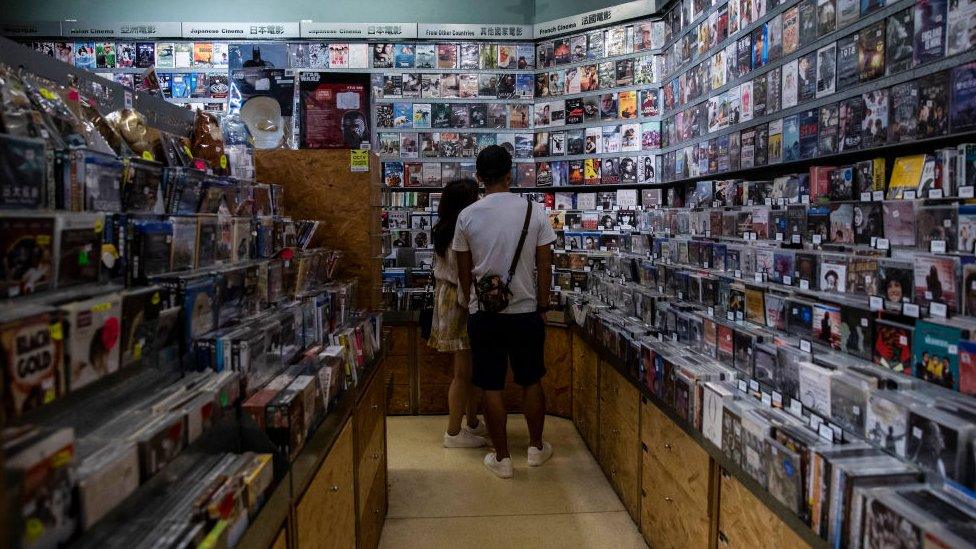Hong Kong passes new film censorship law
- Published

Critics say the new law will affect Hong Kong's vibrant film industry
Hong Kong's legislature has passed a new law banning films deemed to violate China's national security interests, the latest blow to freedom of expression in the territory.
Punishment for violating the law includes up to three years imprisonment and $130,000 (ÂŁ95,000) in fines.
Critics say the legislation will stifle the vibrant local film industry.
Last year, China imposed a national security law on Hong Kong that effectively outlawed dissent.
The legislation, which came after huge pro-democracy protests in 2019, criminalises secession, subversion, terrorism and collusion with foreign forces. Critics say it is aimed at crushing dissent but China says it is meant to maintain stability.
The film censorship law was approved in the opposition-free Legislative Council. It gives the chief secretary - the second-most powerful figure in the city's administration - the power to revoke a film's licence if it is found to "endorse, support, glorify, encourage and incite activities that might endanger national security".
EXPLAINER: Hong Kong's year under controversial law
Experts and content producers have raised worries about the impact of the legislation, which does not cover films posted online, on creativity and freedom of expression.
Filmmaker Kiwi Chow, whose documentary Revolution of Our Times about the 2019 protests was featured at the Cannes Film Festival this year, told Reuters news agency the law would "worsen self-censorship and fuel fear among filmmakers".
A speedy job
By Martin Yip, 91Čȱ¬ News Chinese, Hong Kong
The bill was passed by a simple showing of hands, at the last meeting of the council's much extended current term. And despite the lack of opposition in the legislature, lawmakers still debate.
Councillor Luk Chung-hung claimed it was political films that hindered creativity, not the proposed censorship law. Another councillor, Priscilla Leung, who is also a law professor, insisted the bill was in full compliance with human rights laws, and she hoped to stop such films from "brainwashing" young people.
Filmmakers will certainly be concerned. Dr Kenny Ng of the Hong Kong Baptist University's Film Academy said the new law would see film distributors worrying if their already-approved films would be withdrawn, meaning more uncertainty in the industry.
As for the lawmakers, it is time to prepare for winning their job back as the election takes place in December - under completely new election laws.
The arts industry was already being targeted even before the new law. In June, a local theatre pulled the award-winning documentary Inside The Red Brick Wall, also about the 2019 protests, and its distributor lost government funding.
Book publishers have admitted to self-censoring and the largest pro-democracy paper, Apple Daily, closed earlier this year amid a national security investigation.
Meanwhile, many opposition figures are already in prison or in exile.
The Hong Kong director standing up to China